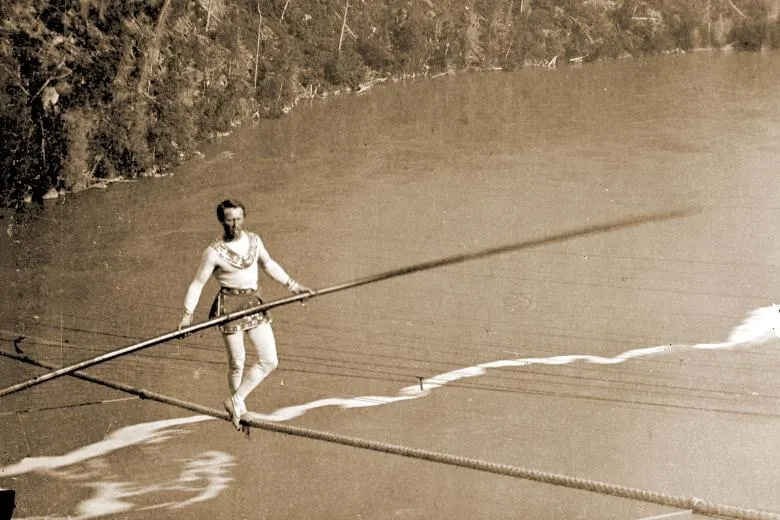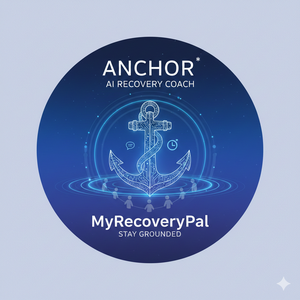
There’s a story that reads like a parable. In the 1800s, tightrope artist Charles Blondin became famous for crossing Niagara Falls on a slender cable — once even pushing an empty wheelbarrow to prove his skill. After this feat, he turned to the crowd and asked, “Do you believe I could push the same wheelbarrow across with someone inside?” The audience thundered their approval: “Yes, yes — we believe!” But when Blondin invited a volunteer to climb into the wheelbarrow, the cheers fell silent. No one would risk their life to prove their proclaimed faith in his ability.
That scene captures the stark difference between professing belief and practicing it. It’s easy to shout, “I believe in recovery! I believe I can stay sober!” But real trust demands action — literally stepping into the unknown and handing yourself over to the process.
Why This Matters in Recovery
Merely agreeing with recovery principles on an intellectual level doesn’t move the needle. True faith in your sobriety journey shows up when you:
Surrender Control
Recovery isn’t just about avoiding alcohol; it’s about relinquishing the illusion that you can manage every outcome alone. Letting go — whether it’s control of your emotions, your schedule, or your relationships — creates space for genuine transformation.
Embrace Accountability
Staying sober requires more than personal willpower. It thrives on community, mentorship, and clear agreements: calling a sponsor at the first urge, meeting attendance, or daily check-ins with a trusted peer. Accountability is the “string” that keeps you tethered when the winds of doubt blow hardest.
Lean into Discomfort
Growth happens at the edge of your comfort zone. Facing cravings, stressors, and emotional storms head-on — rather than sidestepping or soothing them with old habits — builds the inner muscle you need to navigate life’s inevitable challenges.
Transform Insight into Action
Reading recovery literature, attending workshops, and nodding along in meetings are valuable — but they become transformative only when you implement the lessons. Actionable faith demands daily experiments: practicing patience in traffic, extending kindness when you feel judged, or setting boundaries with people who trigger you.
Cultivate Resilience Through Ritual
Consistent routines — morning reflection, gratitude journaling, evening wind-downs — anchor your new identity. These rituals function like the weight on a kite’s string: small yet indispensable actions that stabilize your progress.
“Faith is taking the first step even when you don’t see the whole staircase.”
— Martin Luther King Jr.
Just as Blondin’s spectators needed more than cheers to prove their trust, you need more than promises to secure your sobriety.
Turning “Wheelbarrow Faith” into Daily Steps
Name Your Trust
- How: Write down exactly who or what you’re relying on — your sponsor, your peer group, a spiritual practice, or your own higher self.
- Why: Clear identification of your anchor point strengthens your commitment and makes your faith tangible.
Volunteer for Vulnerability
- How: Share a fear or setback with a trusted friend, peer, or therapist — something that feels risky.
- Why: Opening up transforms private doubt into shared support and reinforces that you’re not alone in the wheelbarrow.
Scheduled “Reality Checks”
- How: Set two daily alarms — one midday, one evening — to pause and ask, “Am I honoring my commitments? Where do I need to realign?”
- Why: Regular check-ins catch drift before it becomes dangerous and keep your string taught.
Micro-Acts of Surrender
- How: Identify a small worry — work stress, social anxiety, perfectionism — and practice letting it go with a simple ritual (a deep sigh, a written note you tear up, a spoken mantra).
- Why: Repeated micro-surrenders build muscle memory for larger acts of faith when stakes are higher.
Celebrate Your Courage
- How: At day’s end, list one moment when you “got in the wheelbarrow” — a time you acted despite fear. Reward yourself with something meaningful: a calming walk, a favorite song, or a call to share the win.
- Why: Recognizing bravery reinforces the belief that trust pays off, motivating you for tomorrow’s flight.
From Belief to Liberation
Faith that remains in the stands is just noise. Faith that climbs into the wheelbarrow — and asks for the ride — is what carries you across life’s greatest chasms. When you embrace uncertainty, practice accountability, and convert your convictions into concrete steps, you transform recovery from hopeful intention into lived reality.
So today, lean into your winds of challenge and grip your anchor of responsibility. Don’t just shout, “I believe!” — get in the wheelbarrow. Your journey depends on it.
🙏 If this resonated with you, please 👏 clap, share your thoughts in the comments, and hit “Follow” to subscribe for more stories on Normalize Sobriety!

Comments (0)
Login to leave a comment.
No comments yet. Be the first to share your thoughts!